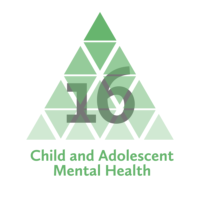Aetiology
-

In Conversation… Prof Elaine Fox
Professor Fox discusses the risk and preventative factors around mental health including the role of resilience, cognitive and affective flexibility, memory bias and negative bias. Includes transcription, and links.
Read more -

Most cited CAMH paper #16 of 25: Adolescent school absenteeism: modelling social and individual risk factors
Jo Magne, Ingul Christian A. Klöckner, Wendy K. Silverman, Hans M. Nordahl.
Read more
Key Practitioner Message includes; Externalising problems and family work and health are more important than internalising problems in predicting school absenteeism -

JCPP Editorial: Volume 61, Issue 02, February 2020
“From risk prediction to action: leveraging electronic health records to improve pediatric population mental health” by Scott H. Kollins
Read more -

Age-related immaturity in the classroom can lead to ADHD misdiagnosis
Researchers from Australia, France, the USA and the UK have come together to compile a 2019 Annual Research Review for the Journal of Child Psychology and Psychiatry on the correlation between a late birth-date (relative to the school year) and risk of attention-deficit/hyperactivity disorder (ADHD).
Read more -

Should emotion dysregulation be considered a core component of ADHD?
New data from researchers in the USA suggest that emotion dysregulation should be included as a core component of attention-deficit/hyperactivity disorder (ADHD) rather than viewed as comorbidity.
Read more -

Gender-specific pathways mediate the risk of substance use in adolescents with ADHD
Data suggest that children with attention-deficit/hyperactivity disorder (ADHD) are more likely to start smoking tobacco and/or marijuana earlier in childhood than unaffected children, and then escalate use during adolescence. Now, a study by researchers at the University of Minnesota has examined the mediating pathways underlying this association between childhood ADHD and later substance-abuse problems.
Read more -

Social cohesion and integration in schools reduces suicidal behaviour rate
Emerging data suggest that strengthening positive social bonds and improving social integration might reduce suicidal behaviours in youth to date; little research has studied the effect of social integration, on suicide behaviours, with reference to a young person’s social network structure — namely, an individual’s position within their network and the patterns of relationships among members of the network.
Read more -

Inflammation does not mediate an adverse childhood experience– self-harm risk association
Inflammation has been proposed to be a candidate mechanism contributing to the association between exposure to adverse childhood experiences (ACEs) and the risk of self-harm. In the first study of its kind, researchers in the UK have now directly studied whether inflammatory processes do indeed mediate this association.
Read more -

Childhood maltreatment increases suicide risk despite strong neuropsychological functioning
A cross-sectional and prospective study recently examined the independent effects of childhood maltreatment, neuropsychological functioning, and psychopathology, and their potential interactions with suicidal behaviour.
Read more -

Social connectedness is a protective factor against short-term suicide attempts (post discharge) in school children
Researchers in the USA have performed a multi-site, prospective analysis of >2,000 adolescents aged 12-17 years to try to determine the short-term predictors of suicide attempts within 3-months of an emergency department visit. The study population was enriched to include a high proportion of adolescents at risk for suicide attempts.
Read more